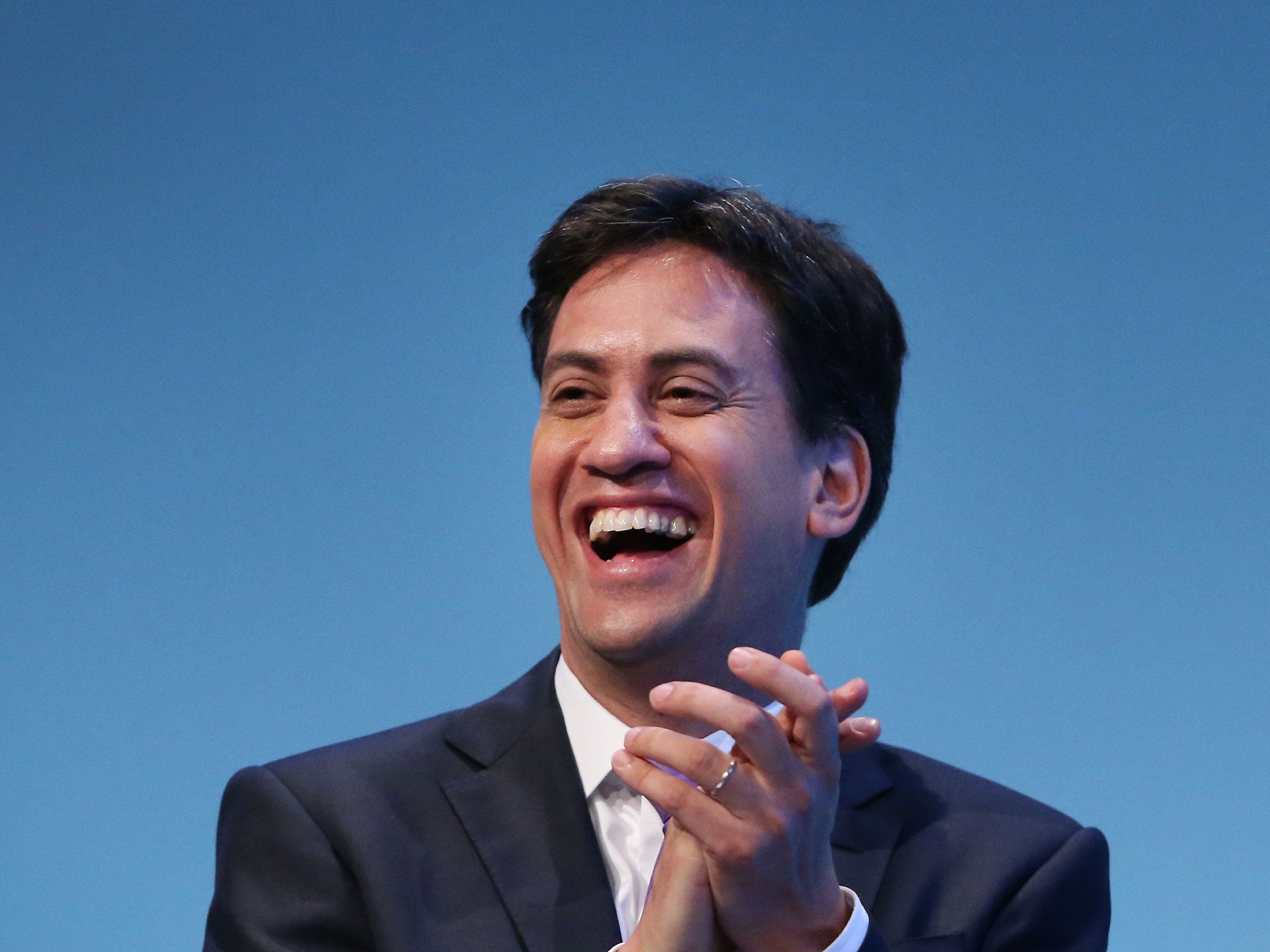Poll: Voters warm to Labour after pledge by Ed Miliband to freeze energy bills
Poll for The Independent shows fall in Tory support as Cameron struggles on key issue

Ed Miliband’s pledge to freeze gas and electricity prices is overwhelmingly backed by the public, but voters are sceptical about the Labour leader’s ability to deliver on his promise once in office, a new poll for The Independent reveals.
His pledge to freeze energy bills for 20 months if Labour wins the 2015 general election was the centrepiece of his party conference speech, and propelled the issue to the top of the political agenda.
The ComRes survey found 80 per cent of the public supported his idea of prices being pegged while the “Big Six” energy companies are reformed, with just 17 per cent saying they opposed the move. A freeze is backed by voters of all political persuasions, with approval from 90 per cent of Labour supporters and 69 per cent of Conservatives.
But only 41 per cent of voters believe Mr Miliband will live up to his words if Labour forms the next government, compared with 52 per cent who forecast he will fail. Executives from the Big Six will be challenged today by MPs on the Commons Energy Select Committee to justify recent increases in charges of up to 10 per cent.
Labour has relentlessly highlighted its price freeze promise, shrugging off David Cameron’s accusation that it is unworkable. In bruising exchanges with Mr Cameron last week, Mr Miliband seized on the former Tory Prime Minister Sir John Major’s call for a windfall tax on energy firms’ profits as evidence of widespread support for state intervention to curb suspected profiteering by energy firms.
The ComRes poll, the first conducted for The Independent since the party conference season ended nearly four weeks ago, found Labour has doubled its lead over the Conservatives to eight points despite a one-point fall in support to 36 per cent since last month.
Support for the Conservatives has dropped to 28 per cent, the party’s equal lowest since the Coalition was formed, suggesting that the issue of energy prices is beginning to cost the Tories votes. The UK Independence Party (Ukip) edged up one point to 12 per cent, narrowly ahead of the Liberal Democrats, who remain unchanged on 11 per cent.
Support for other parties is up five points to 13 per cent, partly driven by a two-point increase for the Green Party, which is now on five per cent and a one-point rise for Plaid Cymru. Repeated at a general election, Labour would win a convincing overall House of Commons majority of 90 on those figures, with the Conservatives losing 87 seats and the Liberal Democrats 25 seats. Ukip would remain without a single MP.
Labour is in the lead among all social and age groups apart from the over-65s who still lean towards the Conservatives, ComRes found. The slump in support for the Tories will disappoint party strategists, who had hoped for a bounce in the polls after their conference.
But they will draw some consolation from continuing evidence that they retain their lead on the crucial question of economic competence, even if the voters are sceptical about the ability of any politician to improve their well-being.
One third of the public (33 per cent) say they back Mr Cameron and the Chancellor, George Osborne, to make the right decisions on the economy (up from 29 per cent in March), while 25 per cent think Mr Miliband and the shadow Chancellor, Ed Balls, can be trusted on the economy (up from 22 per cent). Forty-three per cent of people who voted Labour at the last election said they did not trust Mr Miliband or Mr Balls on the economy.
Senior Conservatives are keen to move the focus to economic recovery, encouraged by last week’s growth figures. The Prime Minister yesterday underlined the message with a visit to a car plant in Oxford to highlight an initiative on apprenticeships.
ComRes interviewed 1,003 adults by telephone between 25 and 27 October. Data were weighted to be demographically representative of all GB adults. Data were also weighted by past vote recall. ComRes is a member of the British Polling Council and abides by its rules.
David Cameron: Schools to blame for immigration
Immigrants cannot be blamed for seeking jobs in British factories when schools and colleges are not producing suitably skilled workers, David Cameron said yesterday
Speaking at Oxford’s Mini plant at an event celebrating apprentices, the Prime Minister argued that improving the educational standards of British young people is vital to controlling immigration. He added that in some plants half the work was done by migrants from Eastern Europe.
Subscribe to Independent Premium to bookmark this article
Want to bookmark your favourite articles and stories to read or reference later? Start your Independent Premium subscription today.

Join our commenting forum
Join thought-provoking conversations, follow other Independent readers and see their replies